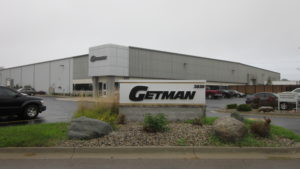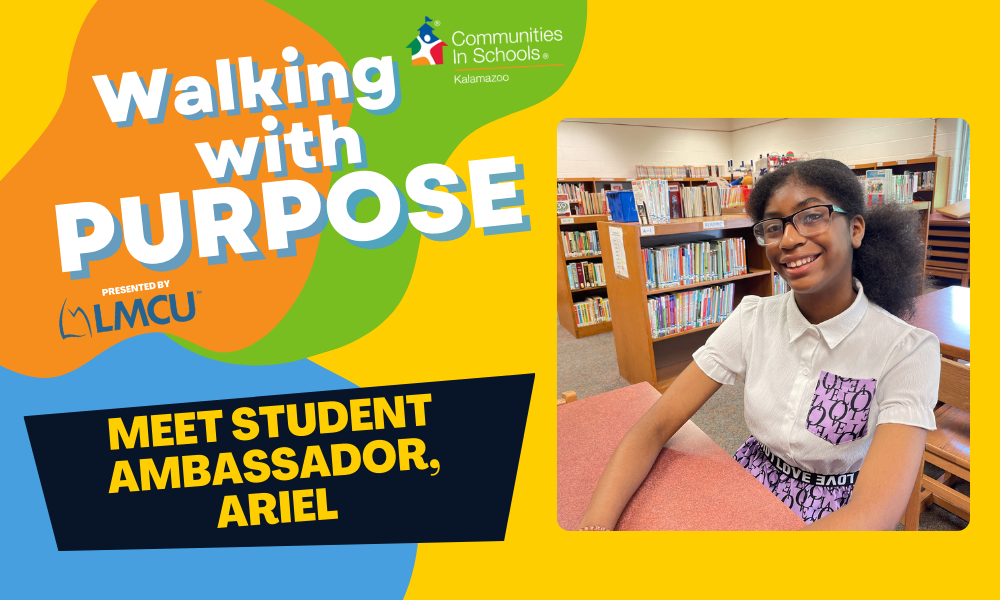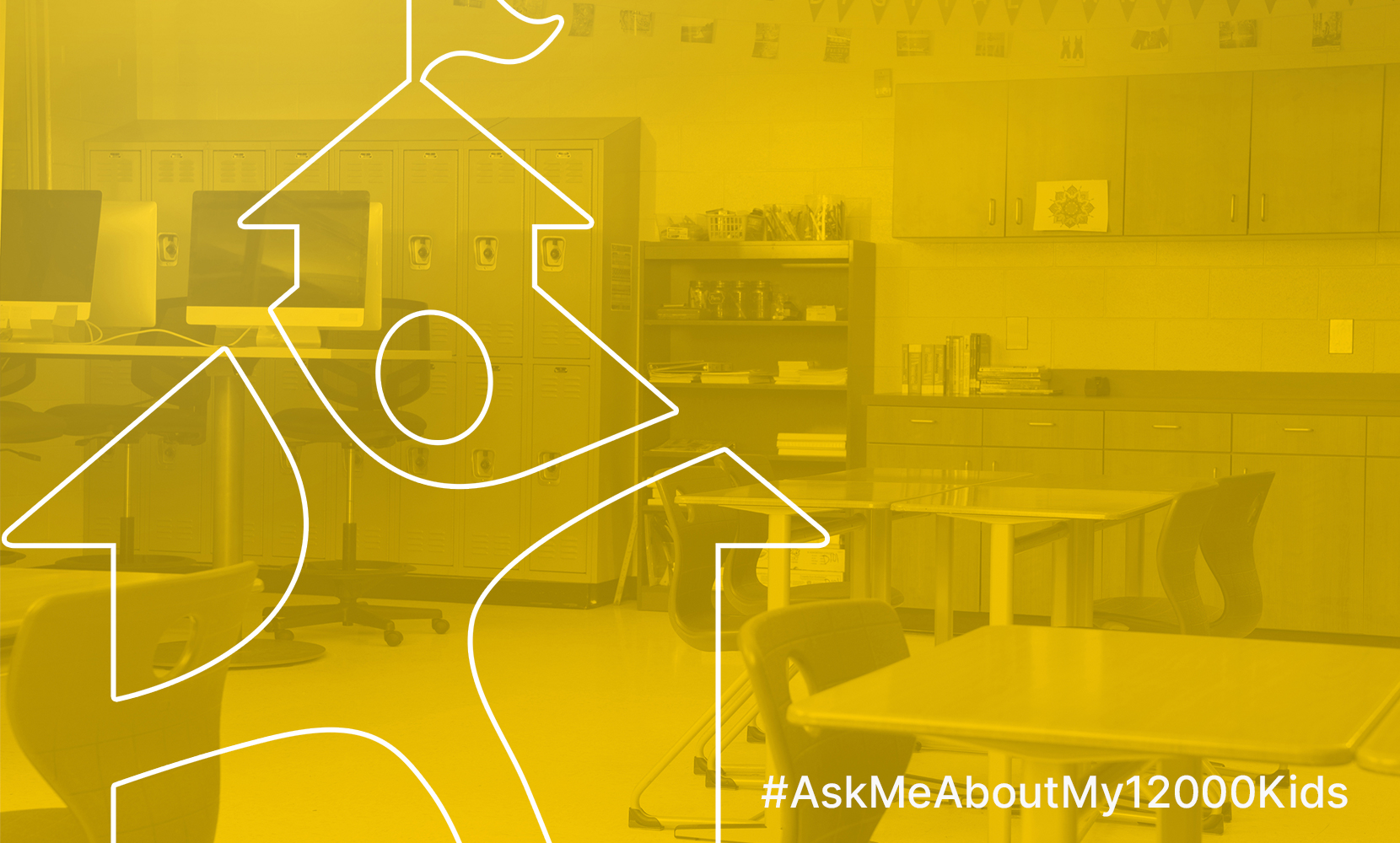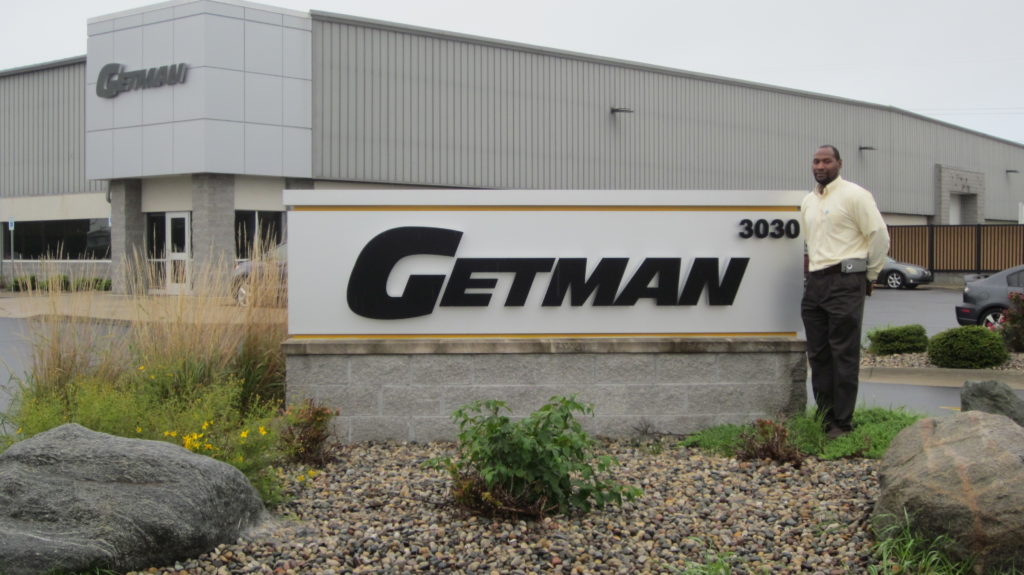 Welcome back to the POP QUIZ! This is a regular, yet totally unexpected, feature where we ask students, parents, staff, our friends, and partners to answer a few questions about what they are learning, reading, and thinking about. Today we feature Dr. Kelvin Lee, a former CIS board member and business person with a new book out, F.I.T (Finding Irreplaceable Talent) For Your Organization.
Welcome back to the POP QUIZ! This is a regular, yet totally unexpected, feature where we ask students, parents, staff, our friends, and partners to answer a few questions about what they are learning, reading, and thinking about. Today we feature Dr. Kelvin Lee, a former CIS board member and business person with a new book out, F.I.T (Finding Irreplaceable Talent) For Your Organization.
We met with Dr. Lee at the Getman Corporation, where he is the executive face of the Kalamazoo facility. Getman is a manufacturer of mining utility vehicles. A global company with humble roots, Getman’s success began with the 1954 creation of a motorized wheelbarrow. (Fun fact: This wheelbarrow was used to transport concrete for construction projects, including the Mackinac Bridge.) Today, with world-wide headquarters in Bangor, Michigan, Getman sells and supports their products on six continents.
Dr. Lee has humble roots, too. He grew up in Henning, Tennessee, a small town north of Memphis. (Henning is also the childhood hometown of writer, Alex Haley.) He holds a doctorate in management and organizational behavior and has been in management for over 30 years. For the past six years, he’s also been teaching business and leadership courses as an on-line adjunct professor for Ohio Christian University. “I find it rewarding,” he says. “I like helping people and working through this platform to help others find their purpose.”
Alright, Dr. Lee: pencil out, eyes on your own paper. Good luck.
Pop Quiz
Where do you fit in? That is a question you pose within your new book, F.I.T., and it is an excellent question on many levels. Kids ask that question practically every day: Where do I fit in? Could you unpack that question for us, in regards to work and life.
It’s both. When we talk about F.I.T., we’re talking about purpose in work and life. Let’s imagine we were to go outside right now and raise the hood of my car. You could see the battery, the sparkplug, the terminal lead, and carburetor. Each one of those components is a leader in its department. So the battery is a leader in the battery or electricity department. That is its only function and there is no other part that can do what a battery does.
Think about it. No other part can do what a battery does! So it’s important to understand your purpose so you’re not wasting time and energy trying to be a carburetor when you are meant to be a battery. But try to be a tailpipe when you are meant to be a battery and all you will do is blow smoke. Where you fit directly equates to your purpose in life.
It’s also important to understand not just what you do, but why you do it.
Let’s think about the car again. All of those things under the hood is the environment and each one of those parts is placed in its environment where each part has the most impact. If you put the battery where the carburetor is, it won’t do much good. You put them in the right place so they can make the most impact.
The purpose of any talent in life—whether it be organization or home—is not to die old, but to die empty. It is about going to the end of yourself and depositing your gifts into this life for your generation and those to come.
Not to die old, but to die empty?
Think about it. A battery is full of power and potential. A battery will deplete its power before it disintegrates. The spark plugs will go to the length of their life before they explode or meltdown. For us, we are full of potential. We want to release our potential and die empty, not go through life and just die old. So, I want to die empty of my gifts and not die old full of them!
…The graveyard is one of the richest places in the world, because it has books that have never been written, music that has never been composed, paintings that have never been painted. That is because some people did not die empty. They did not deposit their gifts into this life.
As leaders, it is our responsibility to ensure our people go through the organization releasing their potential and going to the end of themselves.
When it comes to finding talent, what is a common mistake employers and employees make?
As mentioned earlier: Everybody is trying to be a spark plug. When leaders won’t let employees release their potential, that’s a problem. A battery is designed to give power. The terminals only transfer power. The terminal is not there to generate power. They are simply there to transfer power so the other parts can do their job.
Spark plugs produce energy to push other parts into motion. Within organizations, some people’s only purpose is to transfer power but they end up trying to be a spark plug or battery. Because they try to be a spark plug when they are meant to be a carburetor, they cause fires that leads to firefighting. A spark plug can spark all it wants but if it’s in the wrong place, it’s not going to do any good.
Each individual is part of the greater whole. It’s important for everyone to understand their part. And if someone doesn’t see how they fit, they end up disengaged, stealing company time, not taking care of company property, and not taking care of each other. It creates hidden costs.
What are you? A battery? A spark plug?
An owner’s manual. I help people understand their purpose and potential. There is also a trouble shooting section within the manual and what happens if you don’t follow that potential.
When did you discover you were an owner’s manual?
I was in Japan, serving in the military. I was attending this speech given by a Japanese speaker. He was talking about purpose. I sat back and pondered what he was saying. That’s when I realized: I’m a manual! I’ve always been a magnet for people…Back then, I had a Toyota Corolla that I bought for 700 dollars and used for the two years I was over there. I started thinking about that car and the problems I’d encountered with it, as well as the creator of the car who was not there to help. But the car came with a manual. And that manual helped me. It dawned on me that I’m meant to pour into the lives of other people, to share basic concepts about life to help them perform how they need to perform: to their maximum potential.
Your book, F.I.T., came out in June. Can you catch us up with what’s happened since its release? 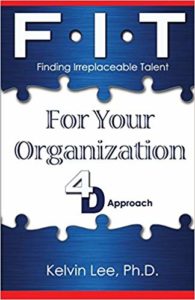
It’s been selling well, but it’s not about the sale. It’s about dying empty and making an impact.
You are a busy man. When did you work on this?
I wrote it over a span of one and a half years. I keep a notepad everywhere I go and jot down notes here and there. I’d jot down notes at lunchtime, in the middle of the night, take a few moments in the car.
What most surprised you about the writing process?
As a teacher, I sometimes take the long way of explaining things. For the book, I found I had to shorten my explanations, and take them from a scholarly level and break it down to a basic level. The process would be different, of course, depending on the audience you are writing to…I wanted to write this book for people who don’t know where they are going.
What is something interesting you’ve recently learned?
I learn something every day. I’m a student of learning I read seven to ten books a month on various topics. Right now, I’m reading books on real estate, stocks, and animal life. I always read books to view new ways of looking at things.
Name of one of the books you currently reading.
There’s a Spiritual Solution to Every Problem by Dr. Wayne Dyer. Everybody in life has a problem to solve. Based upon the problem, your value in life goes up when the problem is solved. People tend to run away from problems when the problem has been sent to give you value.
Are you always this deep in the morning?
We’re here to help each other see the deeper side of life. That’s why we’re here.
What is your favorite word right now?
Purpose.
What is something you love about Kalamazoo?
It’s good for family. For raising a family. My wife and I have an eleven-year-old and a four-year-old.
Behind every successful person is a caring adult. Who has been your caring adult?
My mom, quite naturally. I also have many friends and relatives in my life I consider my board of directors. I consult with them and seek their advice on many different things. They offer sound advice and have good judgment, and they too, are striving for a greater purpose.
At Communities In Schools, we believe that every child needs a marketable skill to use upon graduation. As you know, it’s one of our five CIS basics. As an employer, what marketable skills are you looking for right now?
The most important marketable skill one can have is social intelligence, an ability to interact on an efficient level. You need that first…I’ve been a manager for more than 30 years. I’ve found that all people have gifts; the problem is that everybody doesn’t know how to take that gift and turn it into a skill. When a gift or talent becomes external, it becomes a skill. Once both gift and skill meet the problem, one of three things can happen. One: success. Two: wealth. Or three: greatness.
All good things.
Correct!
What advice do you have for the parents of our 12,000+ students? What can parents do to help prepare their child for today’s labor force?
The one thing parents can do is respect the child for who they are; embrace their individualism! Every child is different and each has something different to deposit into this world.
Going to the end of ourselves is so important. By respecting their children for who they are as individuals, parents help their children make their deposits in this life. We don’t have to respect what they do, but it is important to respect them as a person who has potential.
Thank you, Dr. Lee, for hanging out with us at Ask Me About My 12,000 Kids.
Want to learn about the production process of building a Getman mining vehicle? Take this virtual tour offered on Getman’s website.
Tags: Dr. Kelvin Lee, F.I.T. (Finding Irreplaceable Talent) For Your Organization, Getman Corporation, living your purpose, marketable skills to use upon graduation


